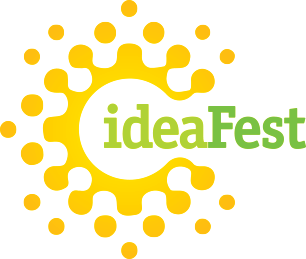May 2, 2025
Reception & Presentations 2pm to 5pm
Cal Poly Humboldt Library
Search Presenters & Abstracts
Presenters & Abstracts: Search
California Firefighter Annual Magazine
Ian R. Babb
English
Undergraduate Student
College of Arts, Humanities & Social Sciences
This project explores previous English 103 coursework on my discourse community, wildland firefighting, and the atmosphere of the career. It provides a sense
of guidance and introduction to the discipline.
Humboldt State Calypso Band - Pan In Unity
Eugene Novotney - Humboldt State Calypso Band
Music
Faculty
College of Arts, Humanities & Social Sciences
Video of the Humboldt State Calypso Band performing Pan In Unity in Fulkerson Recital Hall featuring Len 'Boogsie' Sharpe from Trinidad & Tobago as the Featured Soloist. The video with credits is 7 minutes and 37 seconds long.
Transmission Electron Micrographs of Human Embryonic Kidney Cells Post Drug Treatment
Christine Kupelian
Biology
Undergraduate Student
Haley Nisson
Biology
Undergraduate Student
College of Natural Resources & Sciences
Applying data collected during lab in BIOL 410, we treated human embryonic kidney (HEK) cells to trigger the autophagy pathway. After treating the cells in standard growth conditions and nutrient deprived conditions, we used transmission electron micrioscopy to visualize these cells in hopes of imaging the formation of autophagosomes.
Effects of Lethal Giant Larvae 1 on Murine Neural Progenitor Cell Differentiation
Logan Bailey
Biological Sciences
Undergraduate Student
College of Natural Resources & Sciences
Using Immunocytochemistry to analyze the expression of differentiation markers in mouse neural progenitor cells. Comparisons are made between wild type cells and Lgl -/- cells to view differences in their differentiation potential and analyze some of the potential impacts of the Lgl1 gene or it’s absence.
Bird Diversity in Arcata, California: A Study on Urban Influence
Brittany
Ocheltree
Wildlife
Undergraduate Student
College of Natural Resources & Sciences
In this study, the primary goal was to observe the effects of urbanization on bird species diversity and composition of native and non-native species in Arcata, California. Methods include fixed radius 75-meter point counts for ten minutes, within thirty predetermined study sites, where I counted bird species and the abundance of birds, landscape features (e.g., building density), along with noting any human activity that may occur. I hypothesized that non-native species would increase with increasing building density. In conjunction with that species diversity would decrease with building density.
Relational Aesthetics
Taylor Macias
Art Education
Undergraduate Student
College of Arts, Humanities & Social Sciences
I am interested in adjusting the paradigm of art in public schools. I want to learn more about how art can affect change in people in regards to themselves and their relationship to the world. I want to move beyond pen and paper sketches of three dimensional shapes in space to strengthen our view of ourselves as agents of our own destiny in the world, as I believe this is arts purpose. My research consisted of fifteen participatory instructional performance art pieces done on or near HSU. I did not always provide services and spaces that were enticing enough to draw many people, but I enlivened a new art form on campus, I gave people an authentic and original experience, and I learned a lot.
Ten Plus
Deborah Ketelsen
ITS Media Production
Staff
Other
This is a video showcase by students in ITS Media Production called "Ten Plus." Ten Plus means that more than one in ten students on the HSU campus has a disability and requires some form of accommodation. These videos aim to build awareness as to what is currently being done and what steps we need to take in order to create accessibility on this campus through the use of Universal Design, accessible documents and more. It includes interviews by faculty, students and staff who are familiar with these issues and work with them everyday. This project is funded through the GI 2025. Its purpose is to "remove obstacles and support innovation to increase student success in graduating on time!
Success Factors of Wilderness Therapy Programming
Amanda Masse
Recreation Administration
Undergraduate Student
College of Professional Studies
In recent years, non-traditional therapeutic modalities have become increasingly popular options for the treatment of psychological and behavioral issues in youth at-risk populations. Research shows that this model has great promise of rehabilitative pathways for youth involved in the juvenile justice and psychiatric healthcare systems through the use of experiential education combined with traditional talk therapy modalities to improve self-esteem and self-efficacy. This is especially significant for youth at risk individuals who have previously been unsuccessful in other courses of therapy. This project examines success factors of wilderness therapy programs for youth at risk.
College Instructors’ Perceived Responsibilities: A Descriptive Study
Brandilynn Villarreal
Psychology
Faculty
Hayley Weatherill
Psychology
Graduate Student
College of Professional Studies
College student demographics have been rapidly changing with more students than ever identifying as students of color, low-income students, and first-generation college students. Colleges are working to reduce equity gaps in students’ academic achievement where marginalized students typically receive lower grades than their more privileged peers. The present study investigated the perceived responsibilities of college instructors with a focus on highly equitable classroom practices. Results of the study indicate general endorsement of highly equitable classroom practices as instructors’ responsibilities. Future research can use perceptions to further assess classroom practices and behaviors.
Raccoon (Procyon lotor) Trash Can Use in Relation to Distance from Dining
Haley
Fowler
Wildlife
Undergraduate Student
College of Natural Resources & Sciences
Raccoons have been observed around the campus of Cal Poly Humboldt, particularly in the trash cans. In this study, I tested how distance from dining resources affects raccoon trash can use. I predicted that trash cans closer to dining resources would be visited more often than other trash cans. My results indicated that trash can location in relation to dining resources did not impact the number of visits.
